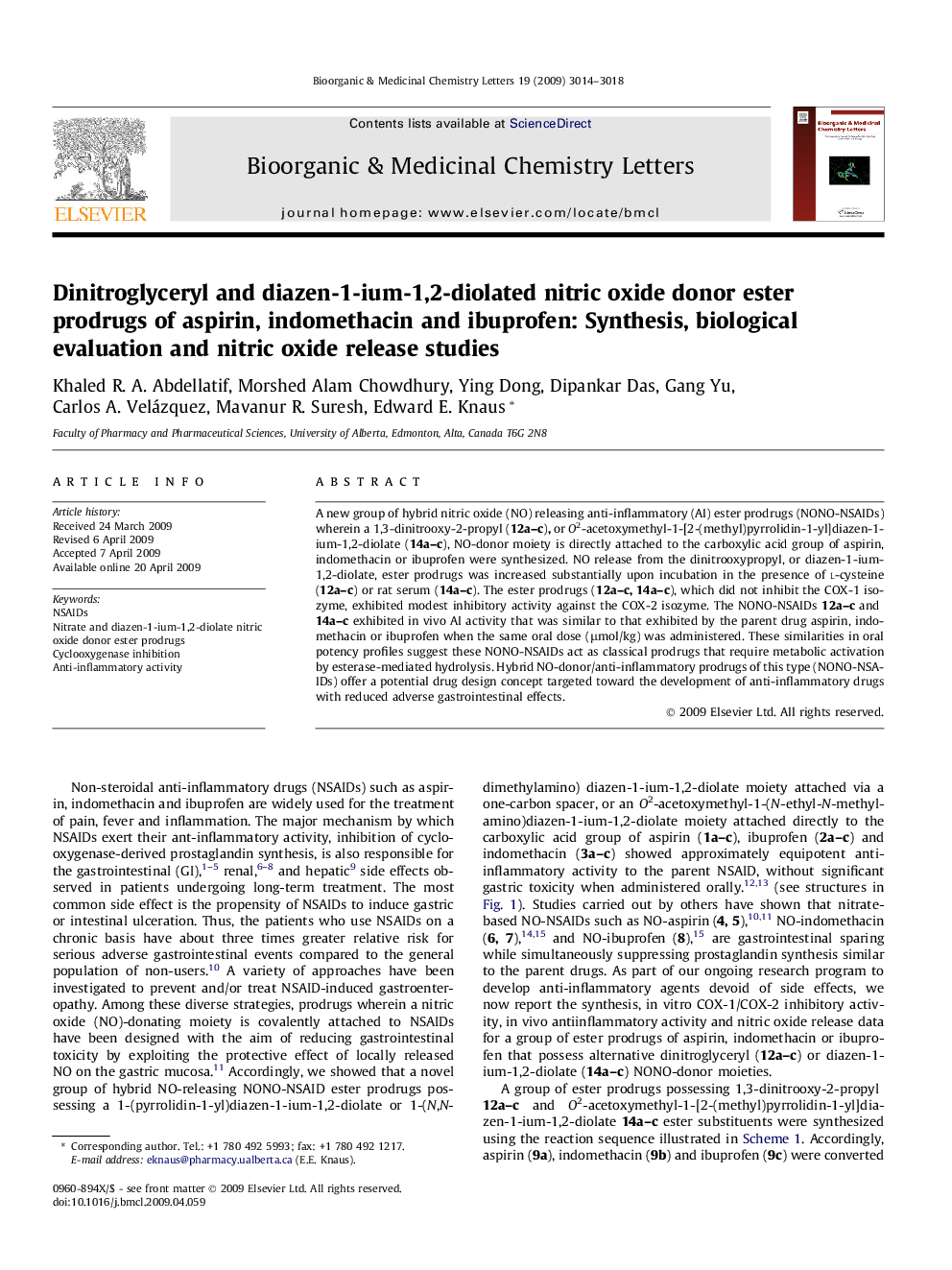| Article ID | Journal | Published Year | Pages | File Type |
|---|---|---|---|---|
| 1373738 | Bioorganic & Medicinal Chemistry Letters | 2009 | 5 Pages |
A new group of hybrid nitric oxide (NO) releasing anti-inflammatory (AI) ester prodrugs (NONO-NSAIDs) wherein a 1,3-dinitrooxy-2-propyl (12a–c), or O2-acetoxymethyl-1-[2-(methyl)pyrrolidin-1-yl]diazen-1-ium-1,2-diolate (14a–c), NO-donor moiety is directly attached to the carboxylic acid group of aspirin, indomethacin or ibuprofen were synthesized. NO release from the dinitrooxypropyl, or diazen-1-ium-1,2-diolate, ester prodrugs was increased substantially upon incubation in the presence of l-cysteine (12a–c) or rat serum (14a–c). The ester prodrugs (12a–c, 14a–c), which did not inhibit the COX-1 isozyme, exhibited modest inhibitory activity against the COX-2 isozyme. The NONO-NSAIDs 12a–c and 14a–c exhibited in vivo AI activity that was similar to that exhibited by the parent drug aspirin, indomethacin or ibuprofen when the same oral dose (μmol/kg) was administered. These similarities in oral potency profiles suggest these NONO-NSAIDs act as classical prodrugs that require metabolic activation by esterase-mediated hydrolysis. Hybrid NO-donor/anti-inflammatory prodrugs of this type (NONO-NSAIDs) offer a potential drug design concept targeted toward the development of anti-inflammatory drugs with reduced adverse gastrointestinal effects.
Graphical abstractFigure optionsDownload full-size imageDownload as PowerPoint slide
